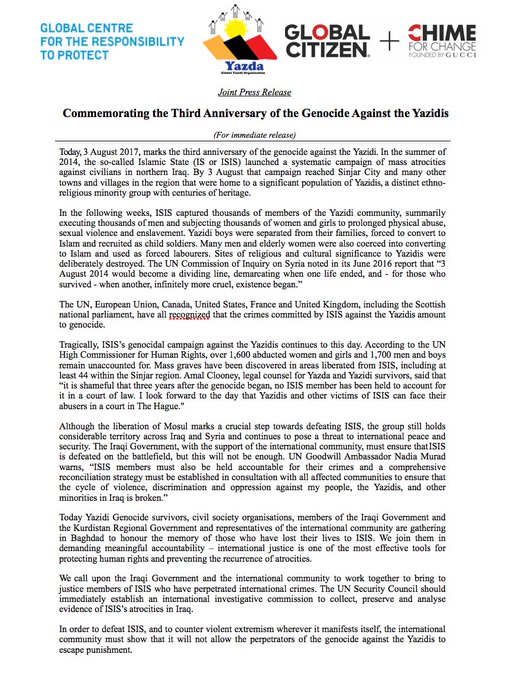By: Catherine Shakdam
Saudi Arabia claimed this July that intense international diplomacy by its ruler, Salman, had been central to ending the standoff at the Noble Sanctuary.
It was Plato if I’m not mistaken who once stated: “we can easily forgive a child who is afraid of the dark; the real tragedy of life is when men are afraid of the light.”
For all our self-proclaimed cultural and technological advancements I would say that our era has very much been defined by such adage.
If I’d dared add to one of our most prominent minds I would say that beyond such tragedy lies another - that which translates in portraying the light as if it was darkness itself. But then as another great man said: “the Truth left me with no friends”- Imam Ali.
Today’s battle, as it was yesterday, and all days before that, is really about the Truth, and how men have worked to wield it as a weapon against the light …
And so, true to form those we call the ruling elite have pitted truths against lies, manipulations against revelations so that in the end they could imprint their own reality and declare it true by the strength of their numbers … King Salman of Saudi Arabia they said is al-Aqsa savior.
What a terrifying thought indeed but to crown the unbearable and the abominable, savior over that which Islam holds holy, when so much of Islam’s sacred ground was lost to THAT house and the ideology THAT kin has fronted - takfirism!
To the risk of upsetting a few of King Salman’s cheerleaders - may I point out that my very faith sits me an apostate under the kingdom’s rules, and as such I have learnt to shoulder Saudi Arabia’s ire, no Saudi king so much as gave a second thought to the fate of al-Aqsa, never mind the cruelty Palestinians have had to face over the decades.
King Salman is no one’s savior! If anything he has towered a butcher over a broken socio-political landscape - that of a nation his forefathers imprinted their name upon, a tyrant over the destitute - Yemen’s famined orphans, a genocidal monarch over Islam’s disappeared heritage - the Baqee cemetery still lies in ruin before the opulence of al-Saud’s architectural prowess.
King Salman is no one’s savior indeed … merely a manifestation of that we call absolutist theocratism. Let’s not give Caesar what he has not earned, especially since really it is Nero’s folly we are staring at without daring calling it that.
Saudi Arabia we must now admit has not only crossed the Rubicon but actually drunk its water …
Saudi Arabia claimed this July that intense international diplomacy by its ruler, Salman, had been central to ending the standoff at the Noble Sanctuary in Jerusalem. In a statement, the Saudi royal court said Salman held "necessary contacts with world leaders on al-Aqsa", which it proclaimed had "culminated in success" - hours after Israeli police relented to people power on the streets of Jerusalem's Old City and removed security checkpoints around the site.
The court said Salman's government contacted the U.S. administration and "stressed the need for the return of calm at al-Aqsa mosque and its surroundings, the respect for the sanctity of the place".
Needless to say that a few people … well actually more than just a few took offense.
#الاقصي_في_قلب_سلمان Credit goes to the courage of the Palestinians who fought tirelessly for Al-Aqsa. Not King Salman. What an insult.
— هيا آل ثاني���� (@hxyaw) July 27, 2017
And why wouldn’t they when everything Saudi Arabia has stood for of late has translated into bloodshed, destruction, and ideological radicalism? From Saudi Arabia’s grandstanding over Qatar’s reasonable call for oversight over the Hajj pilgrimage to cries of disgust over Riyadh’s vengeful humanitarian blockade of Yemen, and al-Awamiyah organized sectarian cleansing, everything the kingdom has said, done, and called for has flown in the face of human decency … and then there is always international law for those who care little for humanity.
Sarcasm aside let us entertain the idea, only if for a second that Saudi Arabia’s monarch did more than vaguely remember where Palestine figures on the map, can we in all good conscious applaud him for Israel’s retreat?
Are we seriously selling Palestine’s resistance - the very space in which Palestine still exist as a free and independent sovereign nation, to the arrogance of a man whose only achievement was to be born in the right lineage?
What has Saudi Arabia ever done but deny Palestinians the courtesy of their own future? How can anyone argue salvation by the hands of a leader whose power is not only anchored in bloodshed but defined by violent repression?
I hereby proclaim my right to frown at the affront.
Al-Aqsa standoff let it be known was won on the back of Palestinians’ determination and overwhelming international support. Saudi Arabia had nothing to do with it. Saudi Arabia I will dare say is merely looking to compound its self-proclaimed custodianship over Islam by extending its greedy hands to Islam’s third holiest sites: al-Aqsa.
King Salman’s move here has more to do with religious hegemony than a sense of religious duty.
Just as the House of Saud rose itself the “keeper” of Islam’s sanctity through its ownership of Mecca and Medinah, it wants now to add al-Aqsa to its coffers, and finally sit itself the Awaited Messiah.
The kingdom’s new claim, however delusional it may sound, betrays a rather sinister agenda - the annexation of Islam by way of religious objectification.
http://www.shiitenews.org/index.php/articles/item/29875-who-are-we-kidding-king-salman-proclaims-himself-grand-savior-of-al-aqsa








